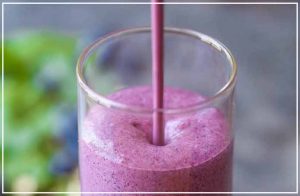Before we discuss on whey protein, let us first understand the protein. It is one of the main constituents of our diet which is necessary for the development of our body and for repairing of the tissues. Its deficiency causes problems like weakness, retarded development, nervous weakness, etc. If it is in excess then also it is harmful and one would suffer from the problems of liver and kidney, uric acid stores in joints leading to gout and rheumatoid. It contaminates the blood arteries and veins, which ultimately gets blocked with waste deposits leading to high blood pressure.
Amino acids are the constituents of proteins. There are about 80 types of amino acid out of which 20 are essential for human metabolism or for growth and development some of them are formed in the liver and others are called essential amino acids which we get from our daily diet.
The amino acids required are arginine, cysteine, histidine, isoleucine, leucine, lysine, methionine, phenylalanine, threonine, tryptophan, tyrosine and valine.
These amino acids are provided by different food items like cereals, pulses, leafy vegetables, etc.
Now it comes to one mind if we are already getting good protein then, what is whey protein and why it is required?
This is what it is described further:

What is Whey Protein?
- Milk contains proteins and minerals, in protein, it consists of two types of proteins, casein and whey. Whey protein can be separated from the casein in milk very easily. It is the by-product of cheese making. When cheese is prepared from the milk the liquid over the cheese is Whey protein. It is considered a complete protein as it contains all 9 essential amino acids. It is low in lactose content. Whey protein consists of beta-lactoglobulin, alpha-lactalbumin, bovine serum albumin, and immunoglobins.

Whey protein with Blue Berry
Why it is required?
Whey protein is required as supplementation, alongside resistance exercise, to help improve athletic performance and increase strength, Increase in the muscles and promote the growth of lean muscle mass. It is also used to overturn weight loss in people due to HIV and also overcome allergic conditions in infants.
Whey protein consumption has high benefits and researchers are constantly finding new possible healing properties.
It can be consumed by both men and women, these days both the genders are equally working hard and both of them require muscular strength. But the consumption depends on the purpose of the requirement to the body. So it is a myth to say only men need it.
Let us explain the benefits and the side effects
Benefits
Whey protein is used for many things in addition to muscle building and weight loss.
- Sports performance
Whey protein intake appears to improve running speed and increase in the lean body mass, provide strength, and increase in muscle size in healthy young adults.
- Weight loss
A study was published in Nutrition & Metabolism. A group of 158 people was taken and fed with whey protein, those who were given whey, lost appreciably more body fat and showed greater preservation of lean muscles compared to the control beverage.
- Antidote for Cancer
In the journal of Anticancer Research, it was mentioned that whey protein acts as an antidote in cancer treatment. But still more shreds of evidence are required to reach this conclusion.
- Reducing weight loss in people with HIV
One more study was published in the journal Clinical and Investigative Medicine that whey protein also helps in putting on the weight of HIV-positive patients, who lose weight due to HIV positive.
- Eczema & psoriasis
It was quite surprising to know that infants who consumed whey protein orally during the first year of life have shown a lower risk of developing red, itchy skin in their later stages of life. Also, its consumption for a few months has shown people improving with psoriasis symptoms.
- Reducing Cholesterol
There was a considerable decrease in total cholesterol and LDL cholesterol at week 12 in the whey consuming people as compared to the casein consumption. This study was published in The British Journal of Nutrition.
- Asthma
One more study involving 11 children, published in the International Journal of Food Science and Nutrition, Whey protein is given for one month could improve the immune response in children suffering from asthma.
- Heart-related diseases
A significant reduction in blood pressure was dropped in patients with hypertension when the beverages which were supplemented with whey protein were consumed. Their risk of developing heart disease was also lowered. This research was published in the International Dairy Journal.
Side effects of Whey Protein
Whey protein also leads to some side effects like- stomach pains, cramps, reduced appetite, nausea, headache, fatigue, acne, etc. If allergic to milk may be specifically allergic to whey.
This usually happens if whey protein is taken in high doses.
Preference
In accordance with the nutritional point of view, if we are having good sources of natural equivalent protein then why unnecessary to go for such kinds of proteins which require additional processing which may lead to some contaminations. Whey protein is very unusual and also requires extra labor to process it. Fresh things are always advisable.

























